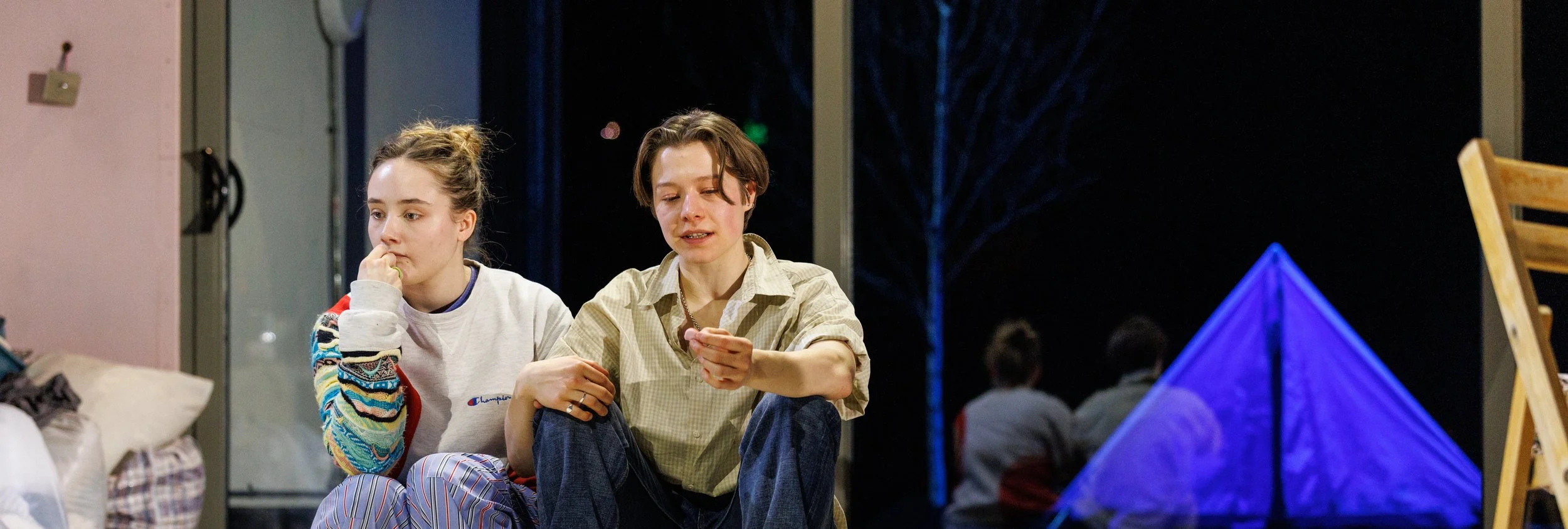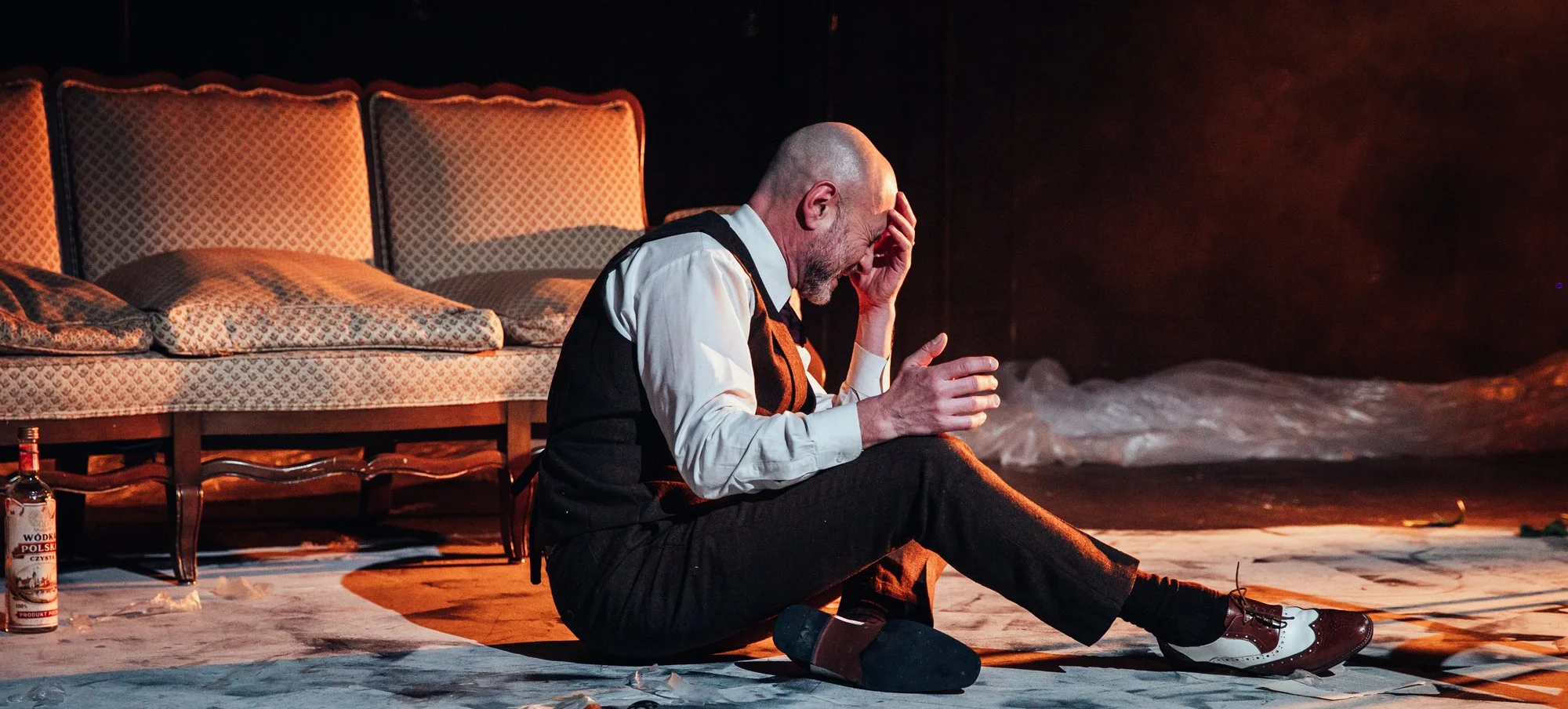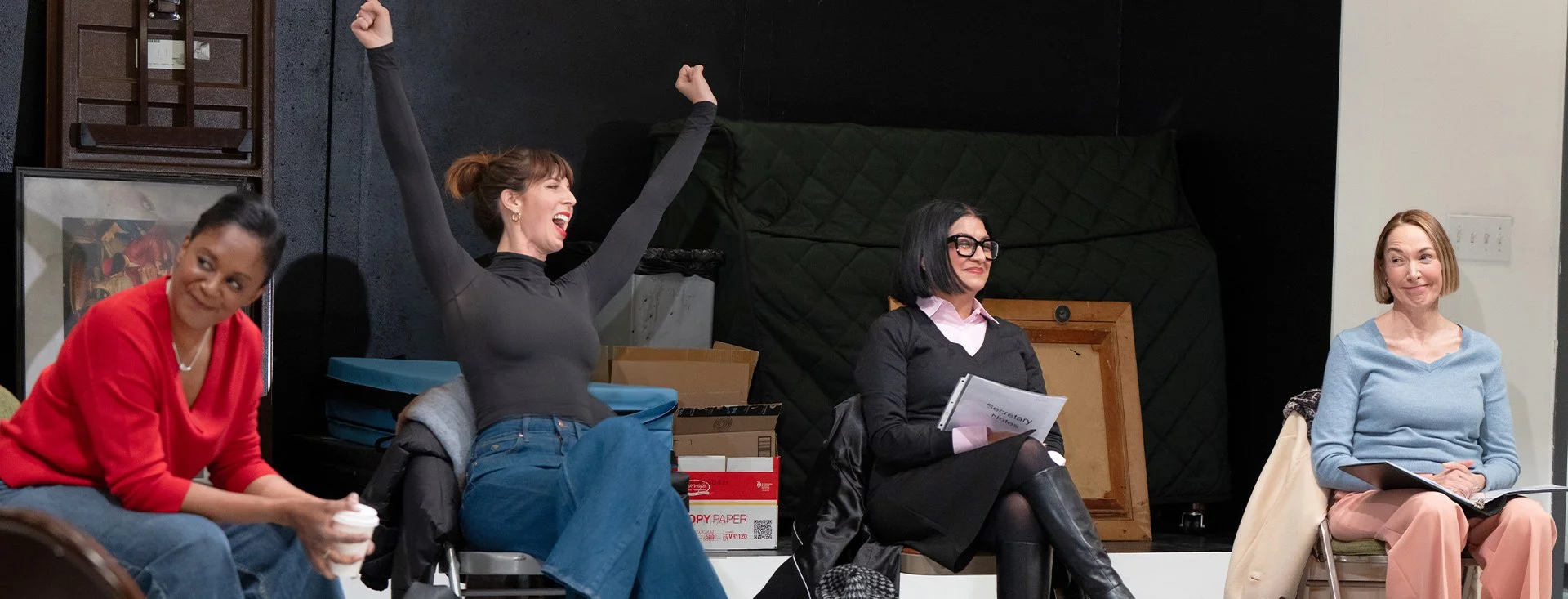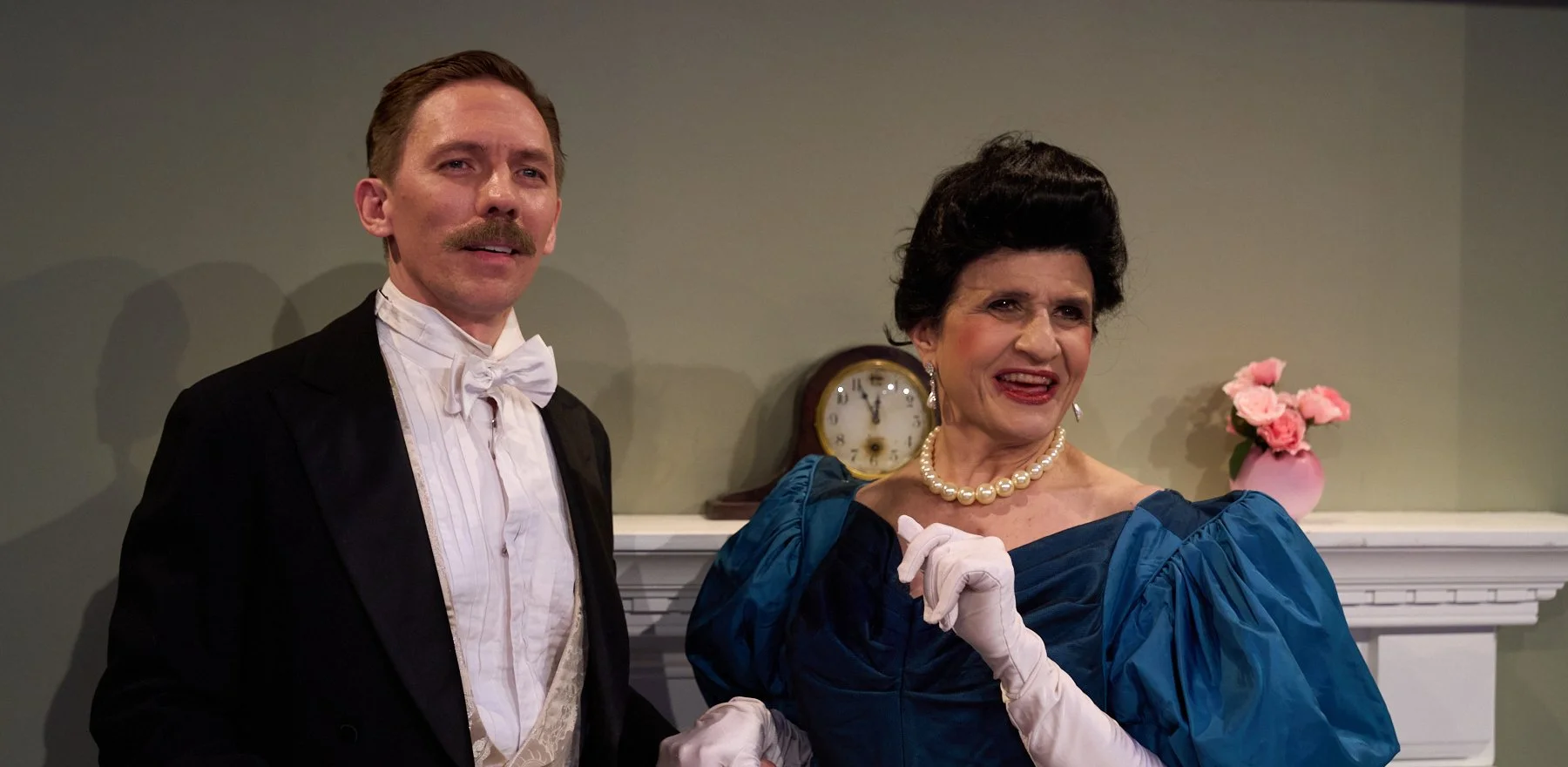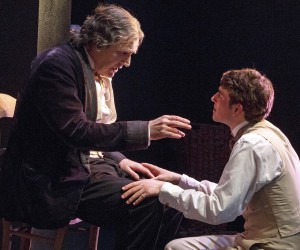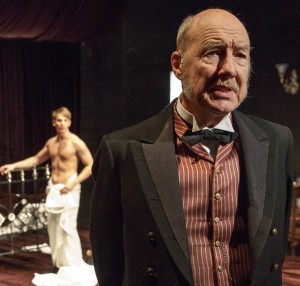“Behind every great fortune lies a great crime” is a quotation attributed to French novelist Honoré de Balzac, but it applies directly to the plot of Oscar Wilde’s An Ideal Husband (1895). Written close to Wilde’s peak—it opened just a month before The Importance of Being Earnest—Husband fizzes with epigrams and uses heightened language to expose hypocrisy. The Storm Theatre is brave to tackle the work, packed both with melodrama and wit, but to succeed, as Sir Peter Hall did with his Broadway production 30 years ago, requires skills and experience that it can’t altogether muster.
Wilde’s ‘Woman’ to get reading by Project Shaw
Gingold Theatrical Group will conclude its 12th season of Project Shaw at 7 p.m. on Dec. 18 with a rare staging of Oscar Wilde’s comedy A Woman of No Importance. Directed by the award-winning Charlotte Moore, the cast features Reed Birney, Cynthia Darlow, Andrea Lynn Green, Tim Jerome, Jay Armstrong Johnson, Robert Langdon Lloyd, Martha Plimpton, Margaret Loesser Robinson, Thom Sesma, and Jennifer Van Dyke The performance will be at Symphony Space’s Leonard Nimoy Thalia Theatre (2537 Broadway at 95th Street). Tickets are $35 and are available by calling (212) 864-5400 or online at www.symphonyspace.org.
An Ideal Betrayal
As Oscar Wilde in David Hare’s 2012 revision of his play The Judas Kiss, Rupert Everett has found the role of his career. Though he’ll always be more famous for films such as My Best Friend’s Wedding, his terrific performance in the production visiting BAM helps resurrect a play by the prolific author of Plenty and Skylight that had less impact in its Broadway debut in 1998.
Neil Armfield's staging has given Hare’s play the heft of real tragedy. The Judas Kiss is set at two pivotal points in Wilde’s life: the first act takes place the day he is arrested at the Cadogan Hotel for gross indecency, following the collapse of his 1895 libel case against the Marquess of Queensberry, father of Wilde’s younger lover, Lord Alfred Douglas, aka Bosie. The second takes place two years later, after Wilde has left prison and has settled with Bosie in Naples, living hand-to-mouth.
In both halves Wilde is seen to undermine his own best interests, all for the love of Bosie, played by Charlie Rowe as an arrogant, narcissistic worm in a light blue suit. (Costume designer Sue Blane clearly knows her stuff; it’s a color long associated with homosexuals.) The first act revolves around Wilde’s refusal to leave England, even as his old friend and ex-lover Robbie Ross (Cal MacAninch) urges him to. Yet Wilde foolishly won’t take the carriage that awaits to spirit him to the Continent.
Instead, Wilde tries his best to be unflappable, tossing off witticisms and demanding a meal of lobster before the police arrive to arrest him. Everett handles the timing and the wit with ease, and he’s physically right as well: tall, and in a fat suit, a bit stout, just like Wilde. He claims to foresee what is going to happen, yet, he says, “I have always had a low opinion of what is called action.” It's a witticism that contradicts his reckless decision to sue Queensberry for libel after being called a “sodomite.” Nonetheless, Everett inhabits the contradictions, the wit, the passion and the foolishness, in a multifaceted, riveting performance.
He’s equally as good in Act II, sitting almost the whole time in a straw hat and lap blanket on a chair in Naples. He and Bosie are in a lowdown hotel, and Bosie is picking up tricks. Tom Colley as an Italian fisherman is one of them; he spends most of his considerable stage time demonstrating that he has no body fat whatsoever. The frank nudity contrasts neatly with the scene that opens the play, when Alister Cameron’s dryly indulgent concierge Moffatt discovers his staffers, Arthur and Phoebe (Elliot Balchin and Jessie Hills), having sex in the darkened room taken by the Wilde entourage. Before Arthur leaves, Moffatt says they must have a talk about the situation later. Twisting a towel around his hand and snapping it ever so slightly, as if it were a riding crop, he warns, “I shall need to reprimand you in person.” His sexual impulses are glimpsed for only a moment, but it’s typical of Armfield’s detail. The contrast between the unruffled acceptance of heterosexuality vs. the disdain for homosexuality, as well as English repression vs. the later Italian vigor, enriches the story.
Hare is one of Britain’s most political playwrights, so barbs aimed at the class system are inevitable. Bosie is an aristocrat who naturally abuses the staff and loudly opposes Robbie’s common sense by insisting his highly placed acquaintances in the House of Lords will pull strings for Wilde. They don’t.
Moreover, Wilde and Bosie are only two sides of a love triangle. MacAninch invests the dapper, punctilious Robbie with an almost palpable unrequited affection for Wilde. His yearning makes their parting the most moving moment in the play. And Wilde behaves cruelly to Robbie, yet Robbie takes it with only the subtlest objection.
Wilde is not, however, so blind that he cannot see Bosie’s callowness. When the arrogant youth declares, “I am already the greatest non-narrative poet in English,” Wilde flashes a scowl that’s priceless. Perhaps it's a bit of a stretch for Hare to cast Wilde as a Christ figure, but it’s not hammered at heavily. The kiss of the title quickly follows, as Bosie has been bought out by an allowance from his parents and has packed his bags. The last glimpse of Everett’s Wilde, throwing his head back and laughing uncontrollably, hints at a classic architecture. He has given up everything for a young man who didn’t really love him; and he has sent away the man who did. The first act is tragedy; the second is farce.
David Hare’s The Judas Kiss plays through June 12 at BAM Harvey Theater (30 Lafayette Ave. between Ashland Place and St. Felix St. in Brooklyn). Evening performances are at 7:30 p.m. Tuesday through Saturday; matinees are at 2 p.m. Saturdays and 3 p.m. Sundays. Tickets start at $30. Visit www.bam.org/theater for information.

